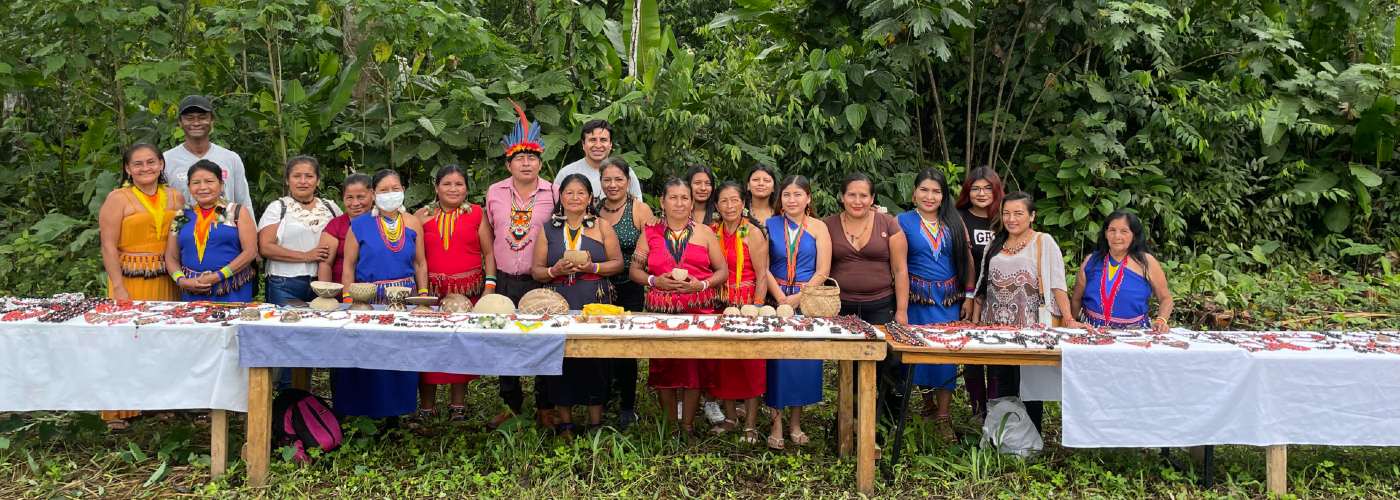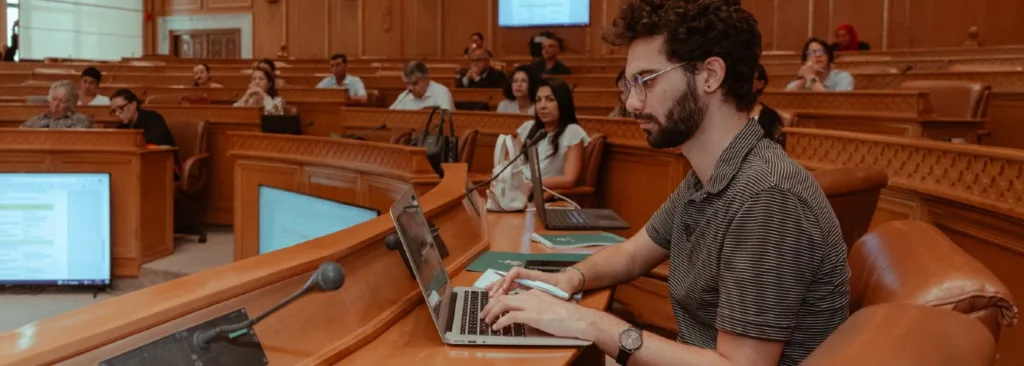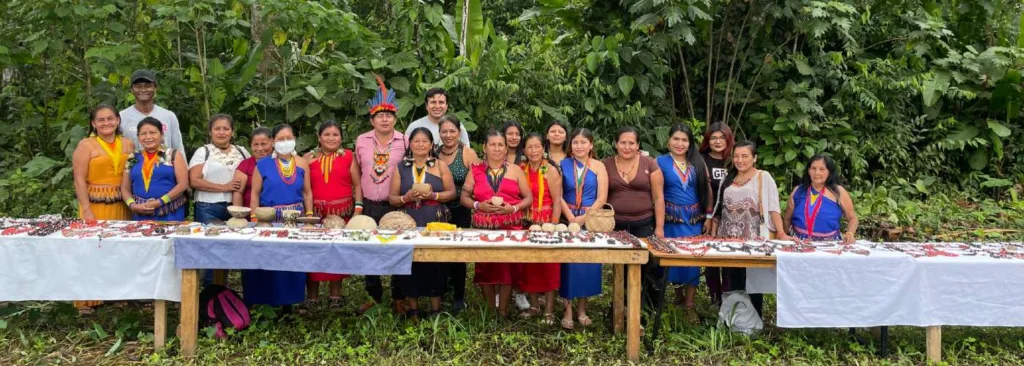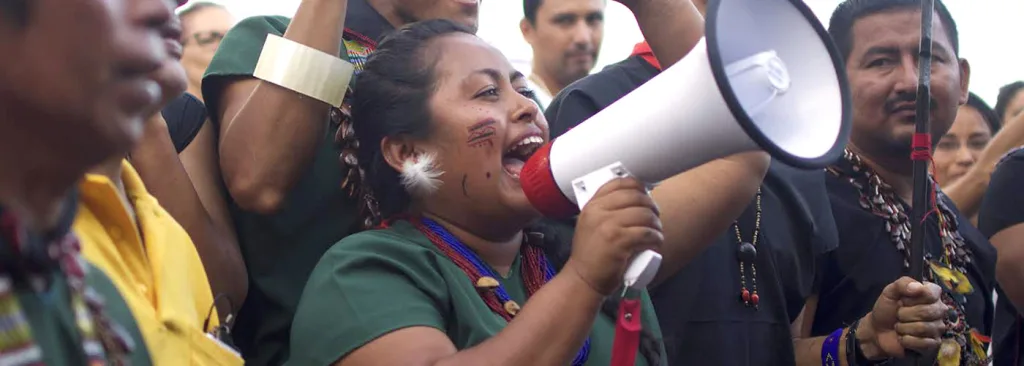Climate change is one of the greatest health challenges of our time. It is destabilizing health systems, deepening inequities, undermining the social, environmental, and economic foundations of good health, and, ultimately, threatens the lives, health, and wellbeing of communities around the world.
For the first time, a COP meeting has acknowledged the important intersection of health and climate change. This presents a groundbreaking opportunity to amplify the voices of Indigenous Peoples and harness their ancestral knowledge to reduce the negative impacts of climate change on health. We are therefore excited to be launching a new initiative together with Amazon Conservation Team, Centro de Trabalho Indigenista and the Rockefeller Foundation which will focus on just that.
In underscoring the importance of the impacts of the climate crisis on global health, we must also recognize the vital need for financing to prevent and protect against the health risks of climate change. That is why Hivos endorses the following guiding principles for financing climate change and health solutions.
Guiding principles for financing climate change and health solutions
Climate change is one of the greatest health challenges of our time. It is destabilizing health systems, deepening inequities, undermining the social, environmental, and economic foundations of good health, and, ultimately, threatens the lives, health, and wellbeing of communities around the world. The Intergovernmental Panel on Climate Change estimates that 3.3 billion people worldwide are highly vulnerable to climate change and face greater health risks as a result. There are profound inequities in the burden of climate health risks and impacts, in the ability to adapt to climate change, and in access to finance, with low- and middle-income countries and vulnerable and marginalized communities most deeply affected.
It is imperative that we protect people from the harmful health impacts of climate change by pursuing ambitious mitigation and adaptation goals, preventing the worst climate risks, and building climate resilient communities including critical water, food, and health systems, in line with the Paris Agreement and the “right to health” enshrined within it. Insufficient, fragmented, and inaccessible financing currently jeopardizes such action.
There are opportunities across sectors – from health and energy systems to economic development, agriculture, gender, and beyond – to advance climate and health solutions. Financing partners including development banks, multilateral funds, national governments, philanthropies, and the private sector, play a key role in each of these spaces and thus have a tremendous opportunity to safeguard human health through coordinated action in partnership with countries and communities. In recognition of the vital need for financing to prevent and protect against the health risks of climate change, and in alignment with the Addis Ababa Action Agenda, Paris Agreement, and 2030 Agenda for Sustainable Development, and wider efforts to improve the efficiency, effectiveness and equity of financing for health and for climate, we support the following guiding principles for financing climate and health solutions:
Guiding principles
1. Accelerate transformative climate and health solutions to save and improve lives now and in the future. Early action is essential to address existing health burdens and frailties in health systems, and to curtail emissions to avoid worsening climate risks and the surpassing of adaptation limits. Priority areas include:
- Rapidly reduce greenhouse gas emissions to improve health, including through rapid transitions away from fossil fuels, lower air pollution, active mobility, shifts to sustainable diets, and limiting climate change.
- Implement proactive public health and adaptation measures to build healthy, resilient, adapted communities and protect people from the range of climate risks to health, with an emphasis on the most impacted communities.
- Build stronger, resilient, and environmentally sustainable health systems, including by delivering universal health coverage and high-quality care to all in a changing climate, enhancing the sector’s preparedness and adaptive capacity, and aligning the sector with global climate ambition by reducing the climate footprint of the health sector.
2. Support the health and climate priorities of the most impacted countries and communities as identified in country-led plans and through partnership with communities, civil society, academia, and local governments. Elevate country ownership and leadership including through support to countries to develop and integrate climate health strategies within national plans and policies. Collaborate with countries to support resource mobilization and leverage national and international finance for climate and health solutions, respecting countries’ differentiated needs and contexts.
3. Promote an inclusive and equitable approach to financing climate and health solutions. Meaningfully engage communities and civil society partners in the co-design, development, implementation, and monitoring of finance. Focus resources in the most vulnerable and impacted communities and invest directly in civil society and community-led solutions.
4. Mobilize a suite of financing from all partners. Unlock substantial support for ambitious, evidence-based action on climate and health from diverse public and private sources, while avoiding the displacement of funds away from other climate, health, and development efforts or the further fragmentation of funding streams. Work across countries and financing institutions to understand the level and types of finance needed, identify and advance strategies to meet these needs leveraging the strengths of different financing streams, and transparently report financing for climate and health solutions.
5. Build the core policymaking and implementation capacities of countries, communities, and financing institutions. Ensure the development of sustainable, resilient, and adaptive systems that can develop and deliver on climate and health plans. Enable the human, technological, social, and other resources needed to ensure the long-term impact of investments in climate and health solutions.
6. Embed climate and health goals across financing strategies, targeting finance towards solutions with the greatest positive impact on human lives and wellbeing, based on evidence. Consider the health impacts of climate mitigation and adaptation in all sectors to prioritize solutions that promote health and avoid maladaptation or the deepening of health risks. Leverage health finance to advance climate mitigation and adaptation in the health sector. Maximize the climate and health gains of investments to support efficiencies in light of resource and fiscal constraints.
7. Enhance equitable access to finance, including through simplified processes that are coherent, transparent, and predictable, and that increase the accessibility, effectiveness, and speed of finance, while continuing to uphold robust fiduciary, environmental, and social safeguards.
8. Support holistic approaches that address compounding climate, health, and development challenges in integrated, not isolated, ways. Foster dialogue and partnership between diverse health and climate stakeholders, including multi-sector financing institutions, to optimally use resources for large-scale impact.
9. Support innovation and scientific research and development. Close the gaps on evidence-based and scalable solutions and accelerate the deployment of proven, locally appropriate best practices. Coordinate across sectors to expand climate and health solutions and evaluate their impact, recognizing the urgent need to take early and transformative action.
10. Promote the alignment of financing for climate and health solutions with broader efforts to transform the international financing system, including by enabling fiscal reform and promoting the move away from subsidies that are harmful for health and the environment.






